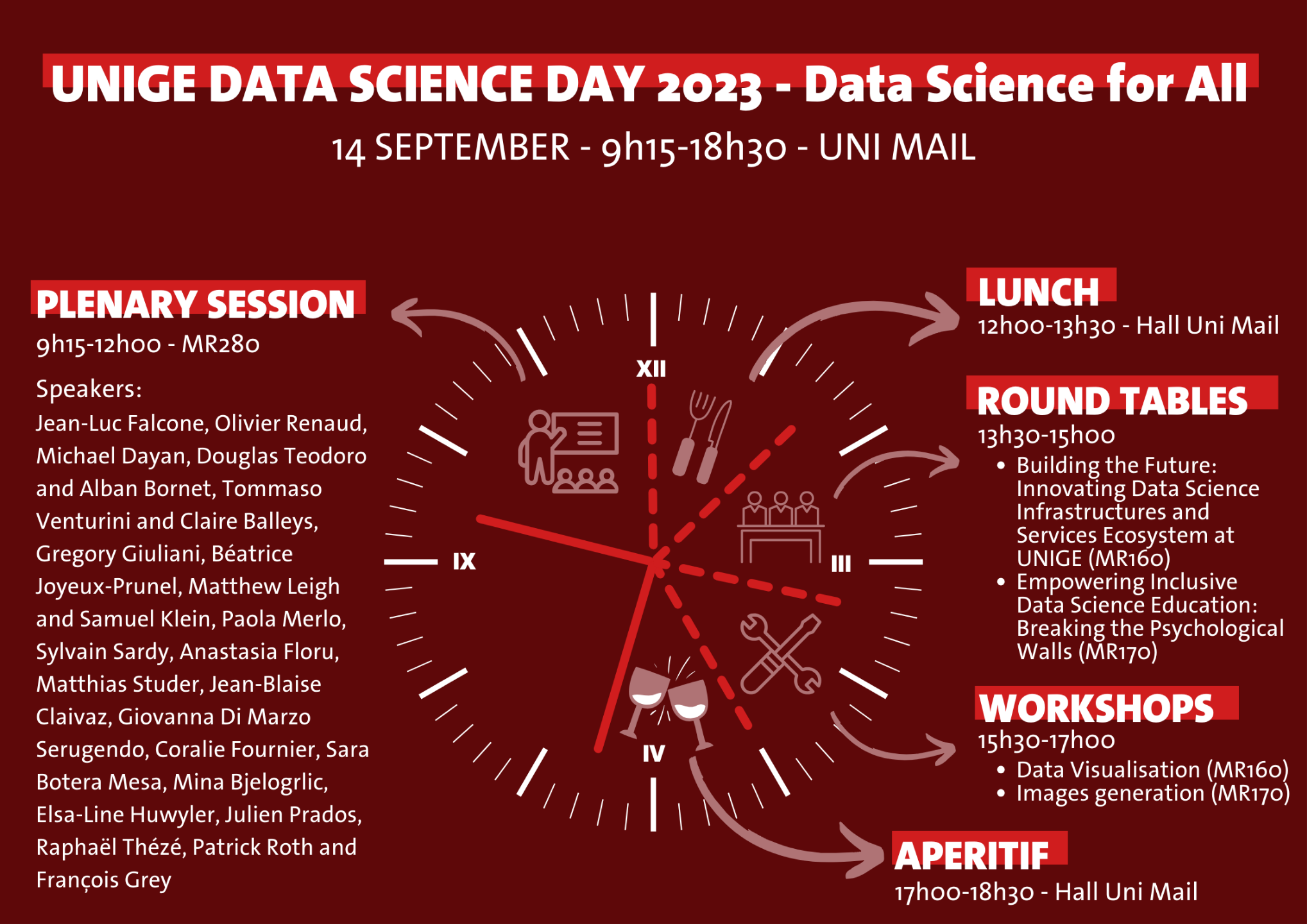UNIGE Data Science Day 2023
The UNIGE Data Science Day is a scientific symposium for researchers at the UNIGE, which takes place at the beginning of the academic year.
Each year, the CCSD stimulates a collective reflection on a particular theme. This reflection is introduced during the UNIGE Data Science Day and continued in the framework of other activities launched by the Center throughout the year. This theme is intended to be precise enough to encourage a significant scientific contribution and a rich dialogue, but also transversal enough to allow for interdisciplinarity.
For its 2023 edition, the theme of Data Science Day is "Data Science for All : How to teach and integrate Data Science in diverse Disciplines ".
This meeting will take place on September 14, 2023 from 9:15 am to 6:30 pm.
Programme

More information on the programme below.
Registration
Interested in taking part of the Data Science Day 2023?
Register here >>
(registrations open until the 4th of September 2023)
2023 Theme: Data Science for all
Data science has become an essential tool for organizations and individuals to extract insights and value from vast amounts of data. However, despite the growing importance of data science, there are still significant challenges in teaching and integrating it in diverse disciplines. While some fields, such as engineering and computer science, have long embraced quantitative methods and data analysis, many other academic disciplines, such as the humanities and social sciences, have not traditionally emphasized these skills. This can result in a significant gap in data literacy across disciplines, which in turn can hinder interdisciplinary collaborations and limit the potential benefits of data science.
To address these challenges, this conference aims to bring together experts from diverse fields to discuss how data science can be taught and integrated into different disciplines, with a particular focus on the research dimension. By sharing best practices and innovative approaches to teaching data science, we hope to promote the democratization of data science education and enable individuals from all backgrounds and disciplines to become data-literate and able to use data to inform research and decision-making.
We will host communications that address topics such as:
- Innovative approaches to teaching data science, such as interdisciplinary courses and experiential learning opportunities, that enable students to develop the skills they need to conduct data-driven research
- Best practices for integrating data science into different disciplines, including strategies for overcoming resistance or skepticism towards data science in some fields and for promoting interdisciplinary collaborations between data scientists and researchers from other fields
- Challenges and solutions for teaching data science to diverse student populations, and for addressing disparities in data literacy across disciplines
- Use cases of data science applications in various fields, showcasing the potential benefits of data science for different disciplines and highlighting successful interdisciplinary collaborations
- Opportunities and challenges for interdisciplinary collaborations in data science education, such as building partnerships across departments or institutions and navigating differences in terminology and methods, and for promoting research that integrates data science with other fields
detailed programme
